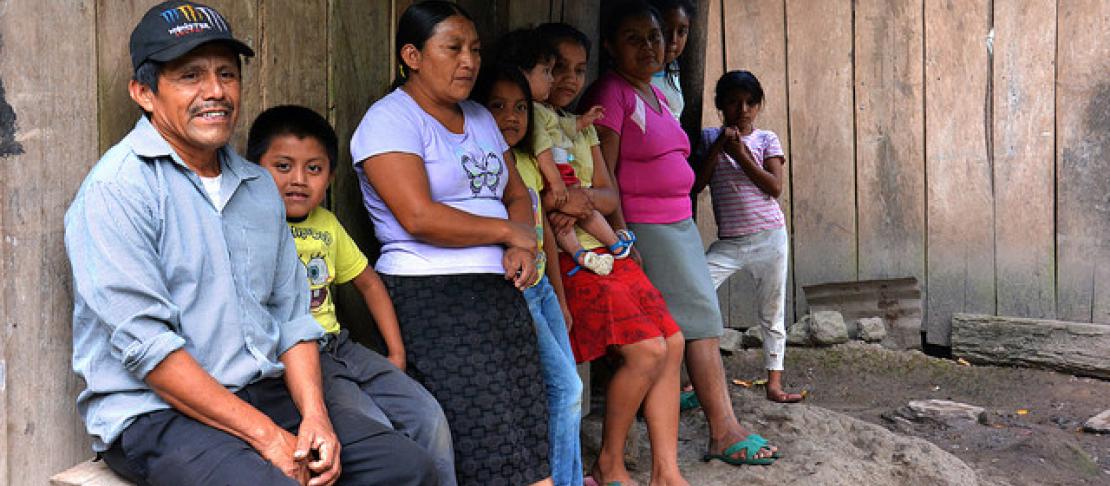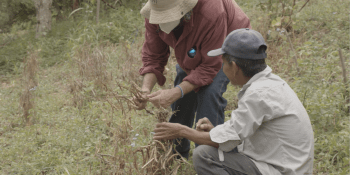Building policies that make a difference for women and men farmers

Researchers and policymakers discuss gender focus in policymaking in Nicaragua and Peru
Farming and food systems will face extreme stresses over the next 40 years due to a progressively changing climate. As a result, the need for planned agricultural adaptation and mitigation is unmistakable. Critical to the success of policy initiatives is the understanding that climate change affects men and women farmers differently, and gender-sensitive adaptation and mitigation policies ensure that people are truly prepared to confront climate change.
This led us to question: what institutional processes and practices can help promote climate change policies that truly take into account the preferences and interests of both women and men farmers? In order to better answer this question, the gender group of the International Center for Tropical Agriculture (CIAT) has analyzed existing related policies in several Latin American countries.
To learn from the decision-makers firsthand, CIAT researchers recently sought out and met with key contacts involved in incorporating a gender focus in policymaking and program development in climate change initiatives in the agricultural sectors in Nicaragua and Peru, during the months of March and May.
CIAT gender researchers met in Nicaragua with representatives of the Ministry of Agriculture (MAG), the Nicaraguan Institute of Agricultural and Livestock Technology (INTA), and the Ministry of Associative, Cooperative, Communitarian and Family Economy (MEFCCA). In Peru, meetings were held with the Ministry of Agriculture and Irrigation (MINAGRI), the National Wild Fauna and Forest Service (SERFOR), and the Ministry of the Environment (MINAM).
In all, the discussions were critical for generating knowledge on mechanisms and processes used for gender integration in different countries and in varying state agencies. For example, MEFCCA in Nicaragua refers significantly to normative instruments specific to gender and social inclusion, such as the National Gender Policy and the Law of Equal Rights and Opportunities, to incorporate a gender focus in its planning and program development.
In Peru, SERFOR and MINAGRI report that all principal state agencies are represented in a multi-sectoral commission on gender inclusion, led by the Ministry of Women and Vulnerable Populations, and they receive direction on gender integration through this mechanism.
The meetings furthermore constitute important activities necessary for the development of research products and methodologies that can be truly useful to ministries and state agencies involved in climate change planning. Peru’s Ministry of the Environment indicated a need to address gender data gaps related to forests, water resources, and health impacts in order to develop and implement gender-sensitive action plans.
For its part, SERFOR highlighted a lack of information on how to develop gender indicators for its programs. According to the feedback received from policymakers in instances such as these, CIAT-CCAFS can prioritize gender and policy research initiatives in Latin America in order to develop relevant recommendations and information for decision-makers. For instance, the CIAT-gender group will be producing country-specific case studies on Peru and on Nicaragua this year and in 2018, emphasizing the importance of collaborative research based on partners’ experiences.



